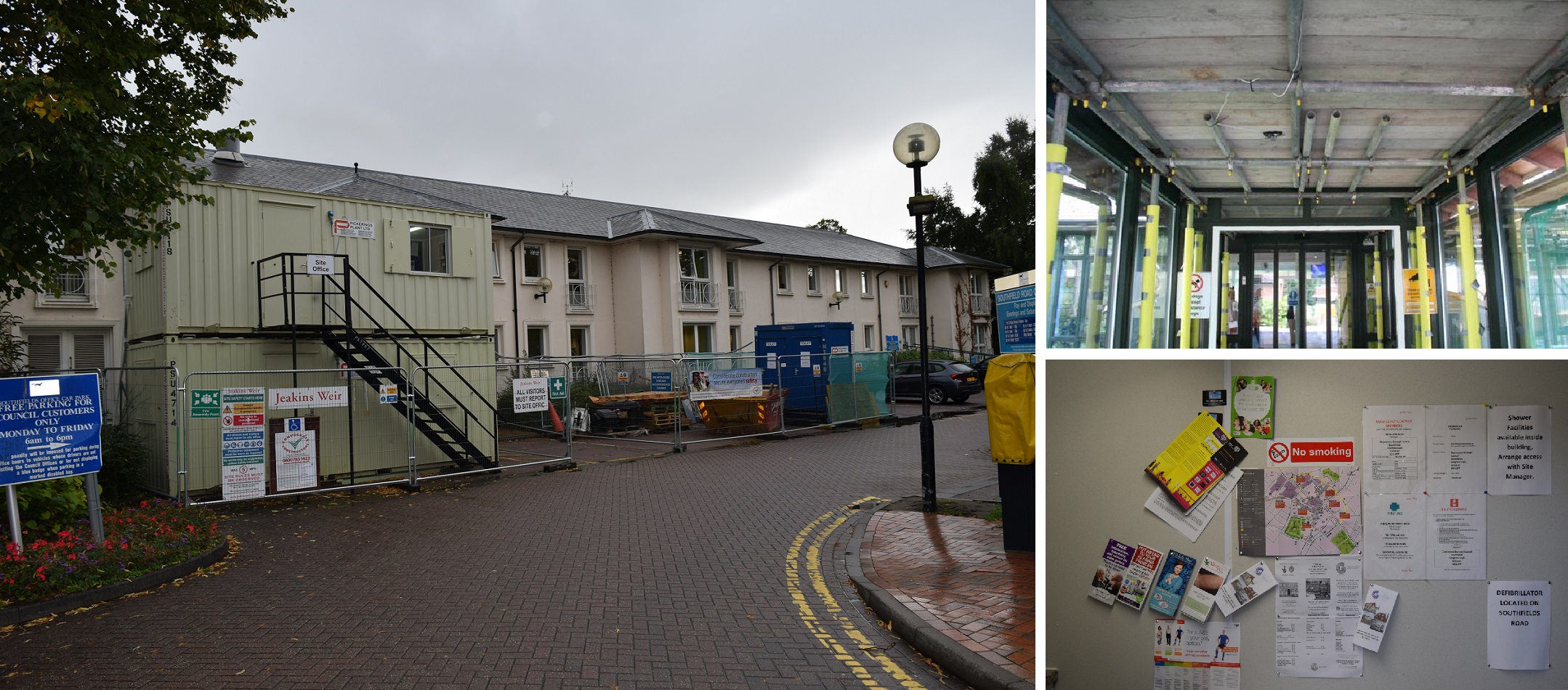Jeakins Weir’s project to extend council offices in Loughborough is highly praised by the Scheme
With its headquarters based in Corby, Northants, Jeakins Weir is the East Midlands’ largest independent contractor, specialising in construction, responsive repairs and property development.
Enabling the usual council services – including weddings and registrations – to continue unhindered during the construction process was a key element of the successful Southfields Project.
Commenting on the benefits of being registered with the Scheme, Jeakins Weir’s Contracts Manager, James Banaszak said:
“The Scheme gives us a chance to show that construction sites are not intimidating, untidy, nuisances, as sometimes portrayed outside of the industry.
“We proudly enjoy showing and presenting impeccably clean, safe and environmentally-friendly places to work, while respecting the local community and having a positive impact on all stakeholders, not just the people directly involved in the project.”
The work consisted of an extension and alteration to Charnwood Borough Council’s offices in Loughborough to increase capacity for the council, Department of Work and Pensions and associated public services.
The internal phase of the works entailed the remodelling of the existing office and reception areas which remained open during normal working hours. Careful planning was required to minimise disruption to visitors of the offices, as well as employees working adjacent to these areas.
The external phase consisted of a new front extension to the existing building which interconnects to the front entrance; this needed to be maintained and operational at all times.
One of the main challenges encountered by the team was ensuring the works were delivered while being mindful of visitors and sensitive proceedings taking place at the nearby coroner’s court and registrar’s office. During the work, many weddings were held at the venue over the weekend. Works commenced in March 2015 and were completed by autumn 2015.
Here are some examples of best practice carried out by the Jeakins Weir project team:
- The site was segregated from the public highway by a highly presentable Heras fence, incorporating mesh protection and all necessary signage.
- There was a procedure for checking and picking litter around the site boundary.
- There were remote compounds for welfare facilities which were equally well presented and segregated from the public highway with Heras panels.
- Company values were promoted through the website and signboard, as well as through inductions and toolbox talks.
- Works were planned in advance and conducted out of hours and at weekends.
- Key staff members provided the site with dates of when the court would be in use to successfully enable planning works around them, causing minimal disruptions or nuisance.
- Letter drops were carried out before significant tasks and noisy procedures were stopped and re-scheduled as a result of client feedback.
- Newsletters were published which helped to communicate community issues, particularly with regard to nuisance. Induction and toolbox talks also kept the workforce updated and reminded.
- Maps were provided in the welfare facilities rest room showing the locations of useful local businesses, including a local café run by people with learning difficulties.
- There was a commitment to employing local labour, with a subcontractor tracker specifically monitoring distances from the site.
- The Contract Manager was also an ambassador for the local CITB which he had used to promote the Scheme and had linked up with the local Moulton College.
- An environmental policy was displayed on site, as well as the internal KPIs and waste reports.
- All services were sub-metered which allowed monitoring of usage and waste. The Contract Manager was actively benchmarking this against other sites.
- The site was also tracking and logging carbon dioxide emissions and establishing its footprint.
- There was a strong ethos on reusing materials, with just some of the many examples including roof slates, windows and doors, all of which were re-used rather than replaced.
- Risk assessments and risk information were disseminated through induction and toolbox talks.
- There was an emergency plan, first aid box and qualified responders equipped with two-way radio and a means of recording accidents.
- The company was signed up to a ‘Language Line’ which provided the instant services of an interpreter if required.
- The company had a suggestion box on site as part of seeking continuous safety improvement in the workplace.
- An open door management ethos was in place.
- Equality and diversity was well promoted on site.
- A prayer room was available on site if it was required, and other religious or diversity considerations were met where needed.
- The site team had taken part in a number of initiatives such as careers evenings through the Contract Manager’s involvement with the CITB. One result of this was the recruitment of a trainee site manager.
- A rigorous training needs identification process was in place and all staff were allocated five days per year to undertake additional training.



